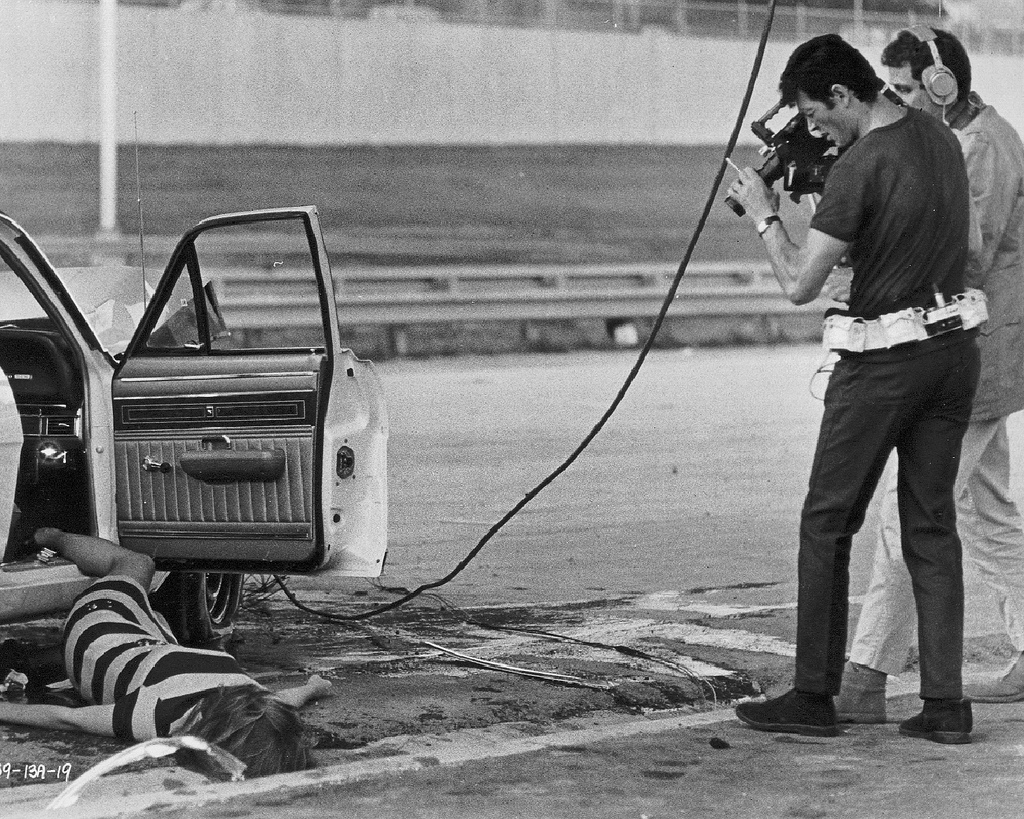Over Ten Years of Critical Cinema
Thursday, February 01, 2018 - Thursday, February 01, 2018

Medium Cool (1969)
Thursday, February 01, 2018 @ 7:00 PM
Globe Cinema - 617 8 Avenue SW, Calgary, AB
$12 General | $10 Members/Seniors/Students | $40 5-Pack Punch Pass | $99 Season Pass
Critical Cinema: WEXLER & WILLIS
MEDIUM COOL | Dir. Haskell Wexler | 1969 | 111 min
FIVE YEARS AGO, THIS FILM WOULD HAVE BEEN CONSIDERED INCOMPREHENSIBLE TO THE GENERAL MOVIE AUDIENCE. NOW IT'S GOING INTO A BIG FIRST-RUN HOUSE, AND YOU DON'T HEAR THE LOOP EXHIBITORS TALKING SO SCORNFULLY ABOUT "ART FILMS" ANYMORE. SO WHAT'S GOING ON WHEN AN EXPERIMENTAL, RADICAL FILM LIKE "MEDIUM COOL" CAN GET THIS SORT OF EXPOSURE?
In Medium Cool, Wexler forges back and forth through several levels. There is a fictional story about the TV cameraman, his romance, his job, his girl and her son. There is also documentary footage about the riots during the Democratic convention. There is a series of set-up situations that pretend to be real (women taking marksmanship practice, the TV crew confronting black militants). There are fictional characters in real situations (the girl searching for her son in Grant Park). There are real characters in fictional situations (the real boy, playing a boy, expressing his real interest in pigeons).
The mistake would be to separate the real things from the fictional. They are all significant in exactly the same way. The National Guard troops are no more real than the love scene, or the melodramatic accident that ends the film. All the images have meaning because of the way they are associated with each other.
And Medium Cool also does the second thing -- sees not the symbols but their function.
Wexler doesn't see the hippie kids in Grant Park as hippie kids. He doesn't see the clothes or the life style, and he doesn't hear the words. He sees their function; they are there, entirely because the National Guard is there, and vice versa.
Both sides have a function only when they confront each other. Without the confrontation, all you'd have would be the kids, scattered all over the country, and the guardsmen, dressed in civilian clothes and spending the week at their regular jobs. So it's not what they are that's important -- it's what they're doing there.
Wexler does the third thing, too. He evokes our memories of the hundreds of other movies we've seen to imply things about his story that he never explains on the screen.
The basic story of the romance (young professional falls in love with war-widow, gradually wins friendship of her hostile son) is certainly not original. If Wexler had spelled it out, it would have been conventional and boring. READ MORE, via Roger Ebert, originally published Sep 21, 1969.
Awards
Directors Guild of America, USA 1970 - Nominated (DGA Award, Outstanding Directorial Achievement in Motion Pictures | Haskell Wexler)
Mannheim-Heidelberg International Filmfestival 1969 - Won (Grand Prize, Haskell Wexler) Tied with 322 (1969).
National Film Preservation Board, USA 2003 - Won (National Film Registry)
National Society of Film Critics Awards, USA 1970 - Nominated (NSFC Award, Best Actress | Verna Bloom, Best Supporting Actress | Verna Bloom, Best Cinematography | Haskell Wexler)
Medium Cool is the third selection in our SPOTLIGHT: WILLIS AND WEXLER series.
SPOTLIGHT: WEXLER & WILLIS
In a new direction for CCS, we're shining a spotlight on cinematographers, choosing two Americans, Gordon Willis and Haskell Wexler, and their politically charged films of the 1960s and 1970s.
Calgary Showtimes: Medium Cool >
CC: Spotlight: Wexler & Willis Whitepaper >
Calgary Cinematheque >
Calgary Cinematheque Facebook >
Calgary Cinematheque Twitter >
Facebook Event >
Eventbrite Buy Tickets >

